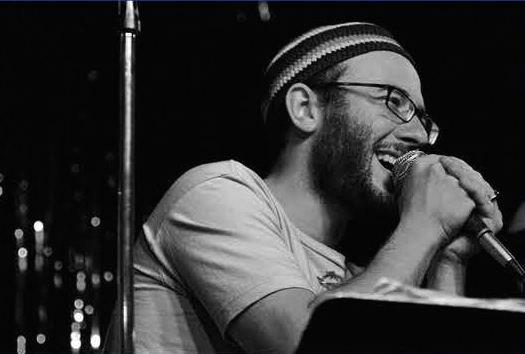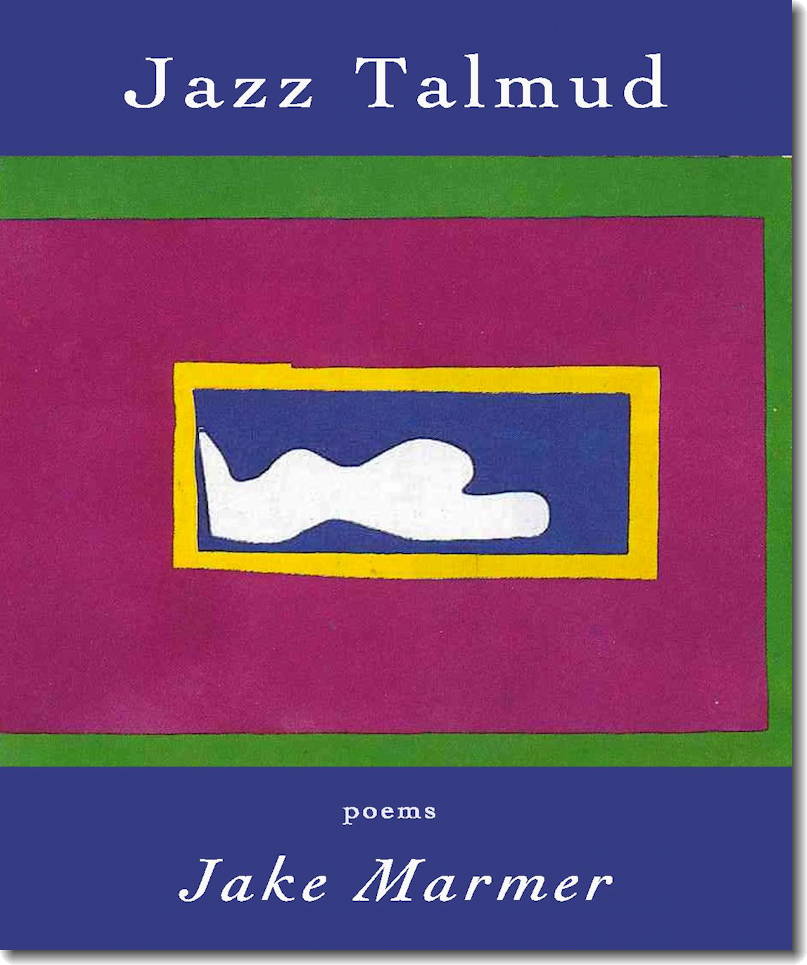JAKE MARMER is a poet and performer. He is a doctoral student at the Comparative Literature department of the CUNY Graduate Center. In 2008-2009 he was a Dorot Fellow in Jerusalem, where the first poems in this collection were written. Jake was born in a small Ukrainian town and came to the U.S. at the age of 15. He now lives in New York with his wife Shoshana and their son Lev.
“Like me Marmer is interested in, I mean, writes about, the Law, mulberries and monk. So how can I resist him?—especially when he does it in his own beautiful way."—Gerald Stern
“Jake Marmer’s Jazz Talmud is a work true to its title & an extraordinary & delightful yoking together of what might seem like disparate & irreconcilable worlds. It is also a small triumph of the Fancy in full flight, comic & serious by turns & written by a practitioner who knows whereof he speaks & from where he comes. That it’s also a first book of poetry only adds to the wonder & leaves this reader for one looking forward to the career & work ahead, as Whitman once wrote for himself & for all of us, ‘without check with original energy.’”—Jerome Rothenberg
“Jazz Talmud is proof (if proof were needed) that God has a sense of humor. How otherwise account for poems with so much shpritz, so much pop, so much bebop, and so much deep digging in the wild blue yonder of Jewish dialectic? Not forgetting, either, 'the odor / of the abyss' or 'the peanuts of lower Manhattan'? Read Jake Marmer (please) and live a little.”—Alicia Ostriker
“Musician and poet, Jake Marmer offers us a combo—Jazz, Talmud, and Bible—T.S. Monk in Jerusalem, a ‘flood-reign staccato grief riff.’ Gospel is a distant cousin. For example, ‘Rachmonos (mercy) Blues’: ‘I know a little woman, / she got a trunk full of rach- / monos, yeah a trunk full of parsnips and rach- /monos wonder if she’ll park it on my street tonight.’ Or try ‘Bachelor's Haiku’: ‘spring evening at home / folding up the warm laundry / one unmatched sock.’ His voice is unmatched. As far as I know, no one else is playing on his street.”—Stanley Moss


